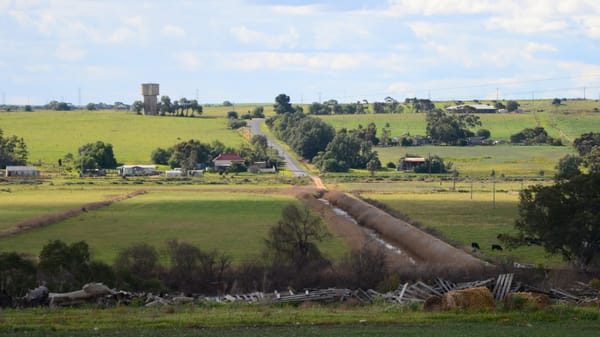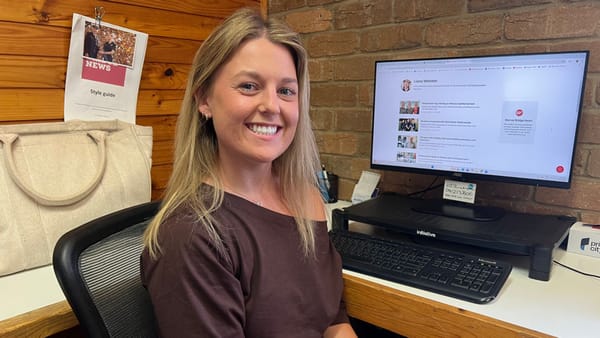Council rate rises ‘shouldn’t be happening’, Murray Bridge and Coorong residents say
Public sentiment is firmly against the rate increases being proposed by the Murraylands' councils.

Locals support locals – that’s why this recent post is now free to read. Your support can help Murray Bridge News tell important local stories. Subscribe today.

The Murraylands’ councils needs to tighten their belts instead of increasing property rates.
That’s what ratepayers have told both the Murray Bridge and Coorong councils this week as each took feedback on their draft budgets for 2023-24.
The Murray Bridge council has proposed increasing property rates by 6.9 per cent, while the Coorong has pencilled in a 10% increase.
But at a time when mortgage repayments, rents, power prices and grocery bills are all going up, many ratepayers may struggle to pay their bills.
Ask anyone to choose between more services and cheaper bills, a tradesman told the Murray Bridge council, and the answer would be unanimous.
Locals support locals. Your support helps Murray Bridge News tell important local stories.
“I have spent 10 years working in people’s homes daily in Murray Bridge and surrounds, and the number-one issue I keep hearing about whilst talking to the local residents is the ridiculously high council rates they are paying compared to most other councils in the state,” he said.
“Many pensioners have told me that the council’s rates are consuming between 10 and 15 per cent percent of their pension, which in these hard financial times shouldn’t be happening.
“Telling the residents that the council has kept the proposed rates increase below the CPI does nothing to help financially struggling ratepayers.”

The story was the same in the Coorong district, where a rural property owner strongly objected to the proposed rates hike.
“For far too many years our rates have increased above the rate of inflation,” they said.
“In less than 10 years … my rates have increased by an astonishing 62%, whilst inflation has been – at my calculations – at approximately 21% in the same period.
“I feel like the services I receive have decreased whilst I am asked to pay substantially more.”
Yes, times were tough for the council, too.
In fact, the Coorong council planned to apply for a $5 million debenture facility with the Local Government Finance Authority – like a credit card with a $5 million limit, basically – in case it ran into cash flow problems at any stage.
“But some of us don’t just have the luxury of increasing our income – we spend within our means,” the ratepayer said.

Other written submissions to the two councils asked similar questions:
- How would low-income earners pay their rates bills?
- Why did pensioners have to pay so much when they had little week-to-week income?
- Why should rural residents pay more when roads were not maintained well enough?
- Why did councils spend so much on “expensive and useless projects”?
Even a one per cent reduction in the rate increase would make a difference, one respondent told the Murray Bridge council.

‘Is this a case of council first, ratepayers last?’
There was one more written submission to the Coorong council – from former councillor Glynis Taylor.
She criticised the council on a number of fronts, including for the higher rate paid for vacant properties, a plan to hire two new employees, and its unwillingness to allow the construction of portable or tiny houses.
She also argued that increasing council rates would add to inflation, feeding into the economic cycle which has prompted the Reserve Bank to lift interest rates so quickly in recent months.
“Is this a case of council first, ratepayers last?” she asked.
“If … the council has over $1 million in cash or equivalents, why does it need to raise income from rates by $1.3 million?
“Surely a figure of $400,000 in extra revenue from rates would be more prudent, and reflect the financial pressures the district is under.”
At a Murray Bridge council meeting on Monday night, only Cr Airlie Keen responded to the public’s feedback.
People’s comments had provided a good snapshot of the sentiment in the community, she said.
“We’ll do our best to hear what they’re saying.”
What happens now?
Consultation on both the Murray Bridge and Coorong councils’ draft budgets has now closed.
Councillors in each district will have one more chance to make changes before they pass their budgets at their next meetings.
The Coorong council will meet at 5pm next Tuesday, June 27, at Tailem Bend.
The Murray Bridge council will do so at 7pm on July 10.





